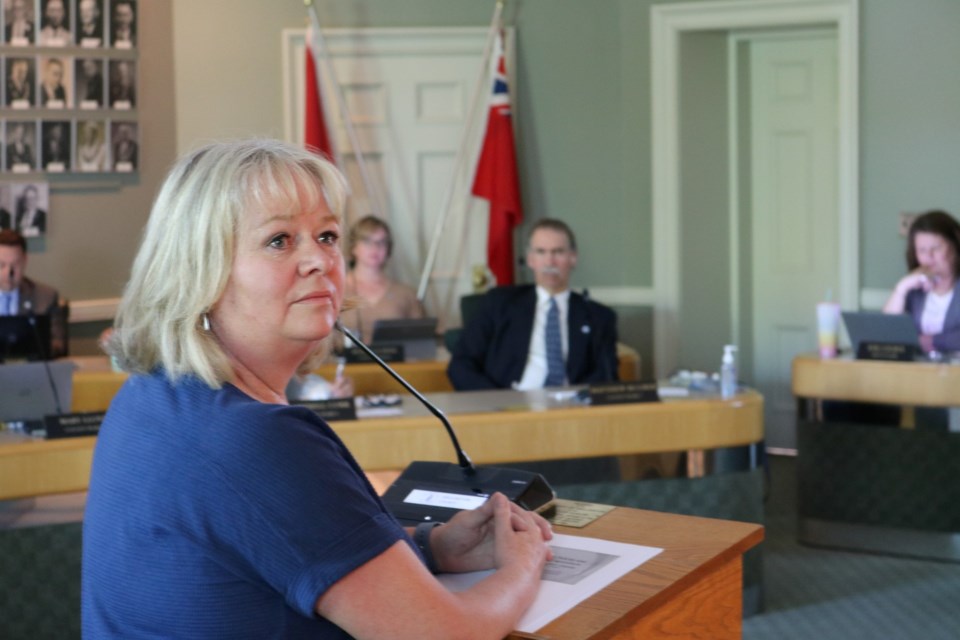WELLINGTON ‒ While all Wellington County councillors agree more affordable and attainable housing is necessary, many believe the province's proposed planning updates will ruin rural life as their residents know it.
Janet Harrop, president of the Wellington Federation of Agriculture, presented a slideshow during Thursday's council meeting explaining the impact these changes could have specifically on animal agriculture and the next generation of farmers.
“Looking at this picture of my family makes me very emotional because I see the future and succession of our farm,” said Harrop, whose family owns a 300-acre cattle farm. “I can see eight residential lots from our farm already – if we wanted to build the operation that we have today there would be no spot.”
The "succession" issue struck “close to home” for most councillors, especially those who grew up in rural areas, like Coun. Shawn Watters.
“(When) I was asked whether I wanted to take over (my family’s farm) ... It didn’t look like there were going to be opportunities to farm because of the urban expansion (in Markham),” said Watters. “And when I grew up there, it looked very much like Fergus and Elora look like today.”
He believes that the province needs to “firm up” intensification rates since they contribute to urban sprawl and he “doesn’t believe anyone wants that.”
“If we’re going to try to really protect our farmland, we need to intensify within our existing communities,” said Watters. “I don’t think people realize how that will literally destroy our communities in terms of agricultural production.”
According to Harrop’s presentation, the county reported growth in several communities from 2016 to 2021, including an additional 122 beef cattle farms.
Farmers in Wellington County currently produce enough dairy, beef, and chicken livestock to annually feed seven times the county's population.
“As I tell people, the importance of class four becomes even more important every time we lose an acre of one to three,” said Coun. Matthew Bulmer. “It’s equally important that we talk about protecting class four, if not five, six, and seven from this policy as well."
According to Harrop, 81 per cent of lands across Wellington County are classified as one to three but that doesn’t make lower-rated areas “wastelands.”
As the price of farmland has increased, Harrop says more farmers are actively farming class four lands.
“We see people that are in agricultural business recognizing the fertility of those marginal lands,” said Harrop. “We are talking more and more about the value of these lands – that they are lands that are quite capable of growing crops, especially some of the specialty crops.”
Wellington County, which makes up 0.2 per cent of Ontario’s total land area currently produces five per cent of its field crop each year. Of those crops, four per cent are corn and soybeans, and seven per cent is wheat.
There are 324 farms across the county growing specialty crops.
“The road to hell is paved with good intentions,” said Coun. Doug Breen. “All I can think of is how many people we’re said no to for good reasons just to have those decisions thrown out.”
While “people do need to live here,” Breen didn’t understand why the province is expecting “rural Ontario to solve a problem that urban Ontario created.”
“It’s easy to see these lands as empty spaces if you don’t understand their purpose,” said Breen. “Farming is not what most people think it is.”
But some councillors argued that some changes were “very concerning,” many communities rely on these land severances for growth.
“I didn’t grow up on a farm so I’m trying to understand the implications,” said Coun. James Seeley. “(But) the comments that you’re making that the proposal is too much ... Is zero growth the answer as well? I’m not 100 per cent sure.”
Isabel Buckmaster is the Local Journalism Initiative reporter for GuelphToday. LJI is a federally-funded program.



